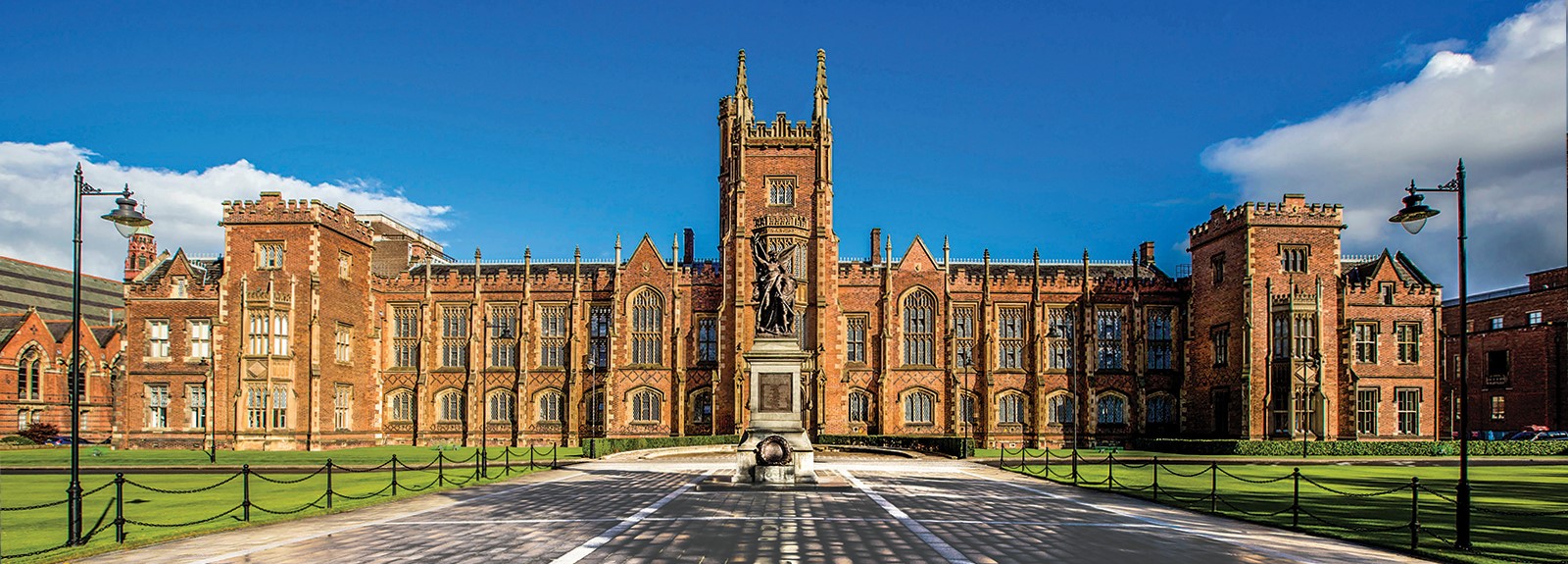Queen’s-led study to benefit children living with the trauma of abuse
Children living with Post-Traumatic Stress Disorder (PTSD) as a result of abuse and neglect are to benefit from a new research project led by Queen’s University, in partnership with Extern, the leading social justice charity on the island of Ireland.

Queen’s has received £264,000 from the NSPCC and the Economic and Social Research Council (ESRC) to deliver the project.
The study will see Queen’s and Extern train ten social workers to screen children aged 10-18 for PTSD and assess the benefits of an intervention known as ‘Trauma Focused-Cognitive Behaviour Therapy’ for those living with PTSD as a result of maltreatment.
The therapy is known to help young people and their families overcome the emotional effects of a traumatic experience, but this study will be the first high-quality trial of the therapy among maltreated children in the UK.
The study will also help fill the gap in evidence on the cost-effectiveness of screening abused or neglected children for PTSD following their referral to family support services.
Lifelong impact of abuse and neglect
Dr John Devaney from Queen’s School of Social Sciences, Education and Social Work, is an expert in the safeguarding of children and will co-lead the project with Dr Michael Duffy, an expert in trauma focused cognitve behaviour therapy. He said: “The maltreatment of a child is wrong on every level and children have to live with its effects well into adult life.
“There is clear evidence that children who have been abused or neglected go on to experience problems including Post-Traumatic Stress Disorder, anxiety, suicidal thoughts, substance abuse and aggressive behaviour. Crucially, there is also evidence that the right interventions, delivered at the right time, can benefit these young people and significantly improve their life outcomes.
Psychological intervention
“While robust processes are in place to identify at-risk children and protect them from immediate harm, there are concerns that the impact of abuse and neglect is currently under-assessed. As a result, the need for ‘interventions’, or therapy, often goes unrecognised, and this can have lifelong consequences.
“This project will help train professionals to identify children who have been traumatised by maltreatment so that they can receive timely psychological intervention. It will also allow us to assess the impact of that intervention and determine the cost-effectiveness of PTDS screening and Trauma Focused-Cognitive Behaviour Therapy.”
“We are delighted to be able to work with Extern in undertaking this study. Each year Extern work with over 5,000 vulnerable children and their families, and therefore the learning from this study can make a real difference.”
Speaking about the project, Extern’s Assistant Director for Young People & Families, Leslie Ann Scott, said: “As the leading social justice charity on the island of Ireland, Extern is recognised for its life-changing work with some of the most vulnerable children and young people in our society. In combining Extern’s substantial experience of meeting children at their point of need, with the safeguarding expertise of Doctor John Devaney and his colleagues from Queen’s University, this study has the potential to shine a little more light, at the end of what can be a very long tunnel, for those children and young people who have suffered abuse and neglect.
“I would like to commend the ESRC and NSPCC for their support of this new research project which will help inform, and improve, the way in which we, as a society, support abused and neglected children.”
How will the study work?
Children who have been referred to a specialist family support service following an experience of maltreatment will be assessed for PTSD by the Queen’s and Extern trained professionals.
Those children with PTSD will be randomly assigned to one of two groups. One group will receive the existing standard family support service, while the other will receive that standard service alongside a twelve-week course of Trauma Focused-Cognitive Behaviour Therapy. The outcomes for both groups of children will be compared to assess the benefits of the Therapy.
Importantly, the children who don’t initially receive the Therapy will be offered it at the end of the initial twelve-week period, so all children in the study will receive the intervention.
The study will commence in March 2017 and be completed by September 2019.
Media
Media inquiries to Queen’s University Communications Office T: +44 (0)28 9097 3087/3091 E: comms.office@qub.ac.uk